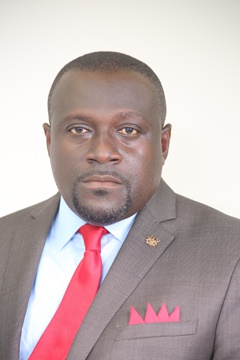The government concluded its roadshow in Accra on Monday 23rd October, 2017 toward the issuance of an energy bond to refinance the energy sector debt.
As at end-June 2016, the stock of debt of ECG, VRA, GRIDCO, GNGC and TOR stood at over GHC 22 billion. These outstanding payments in the energy sector is affecting the development of the sector, crippling banks and slowing down the economy in general.
The government intends to use an independent SPV, the ESLA Company Limited for the sole purpose of issuing debt securities to refinance the energy sector debt. The primary aim of the SPV is to collect and manage proceeds from the bond and the ESLA receivables; and to repay the creditors and bond holders.
CLASSIFICATION OF THE BOND/DEBT
The IMF is of the view that the bond to be issued by ESLA Company Limited, the SPV should be treated as “pure” central government debt. The fund insists that the SPV, established by a government decision is not independent of central government.
Minister Seth Terkper, however, argues that the ESLA-backed energy bond must not be classified as a “pure” public debt. For him, classifying the bond as such would be a backward step because “the bond is backed by a special levy imposed by parliament”. At worse, Terkper argues that such bonds should be classified as contingent liabilities that only crystallise when government defaults.
Contrary views to Terkper’s have emerged. Former Chief Executive of GNPC Alex Mould is reported to have said that these debts arose as a result of unpaid subsidies by government. He contends, therefore, that unpaid subsidies must be classified as Public Debt. Former Minister of Power and MP for Pru East also argues that the entities involved are owned by the government and thus their debts must be seen as public debt.
DEFENDING THE GOVERNMENT’S ENERGY BOND CLASSIFICATION
For the purposes of the program with the IMF, the use of ‘government’ in the budget refers to the central government. Central Government is defined to exclude government-controlled, but legally distinct and tax-funded entities like DACF. It also excludes subnational and government-owned corporations. Adding those defines general government.
To all intents and purposes, Ghana uses budgetary central government for the purposes of defining budget deficit, and in the computation of public debt in consonance with the ECF program. This explains why VRA debt is excluded from the definition of public debt. Likewise TOR debt and ECG debt and Ghana Gas debt and GRIDCO debt.
A cardinal principle of the Fund is consistency, to which they religiously adhere. So if the Fund has consistently excluded the energy sector debt from the computation of the public debt, why the sudden change?
Then there is the precedence argument. The Asset Management Corporation of Nigeria (AMCON) issued a similar government-backed bond in 2011 to refinance arrears and aged payables in the Power SOE sector. At the time, the Fund did not classify it as a government debt even though AMCON, in character, is like the ESLA SPV. Wherein lies the other cardinal IMF principle of even-handedness and fairness?
And, finally, a refresher on the ESLA Act, 2015 (Act 899) would not have led the Hon Isaac Adongo to conclude that GHC 3.6 billion a year for 3years will yield GHC 10.8 billion from ESLA, sufficient to clear the energy sector debt.
For your information, GHC 3.3 billion was collected through ESLA in 2016 in total. Only GHC 1.2 billion of this amount was allocated to Energy Debt Recovery as specified in the first schedule of the Act. The rest was allocated to the Road Fund, Energy Commission, National Petroleum Authority, for Public Lighting and for National Electrification.
So the government is right not to classify the ESLA-backed energy bond as public debt.
...Signed...
Dr. Mark Assibey-Yeboah
(MP for New Juaben South Constituency, Eastern Region and Chairman of the Finance Committee of Parliament)
Business News of Wednesday, 25 October 2017
Source: Daniel Kaku
Energy Bond: Mark-Assibey Yeboah writes to defend government
 Dr. Mark Assibey-Yeboah, MP for New Juaben South Constituency
Dr. Mark Assibey-Yeboah, MP for New Juaben South Constituency
















